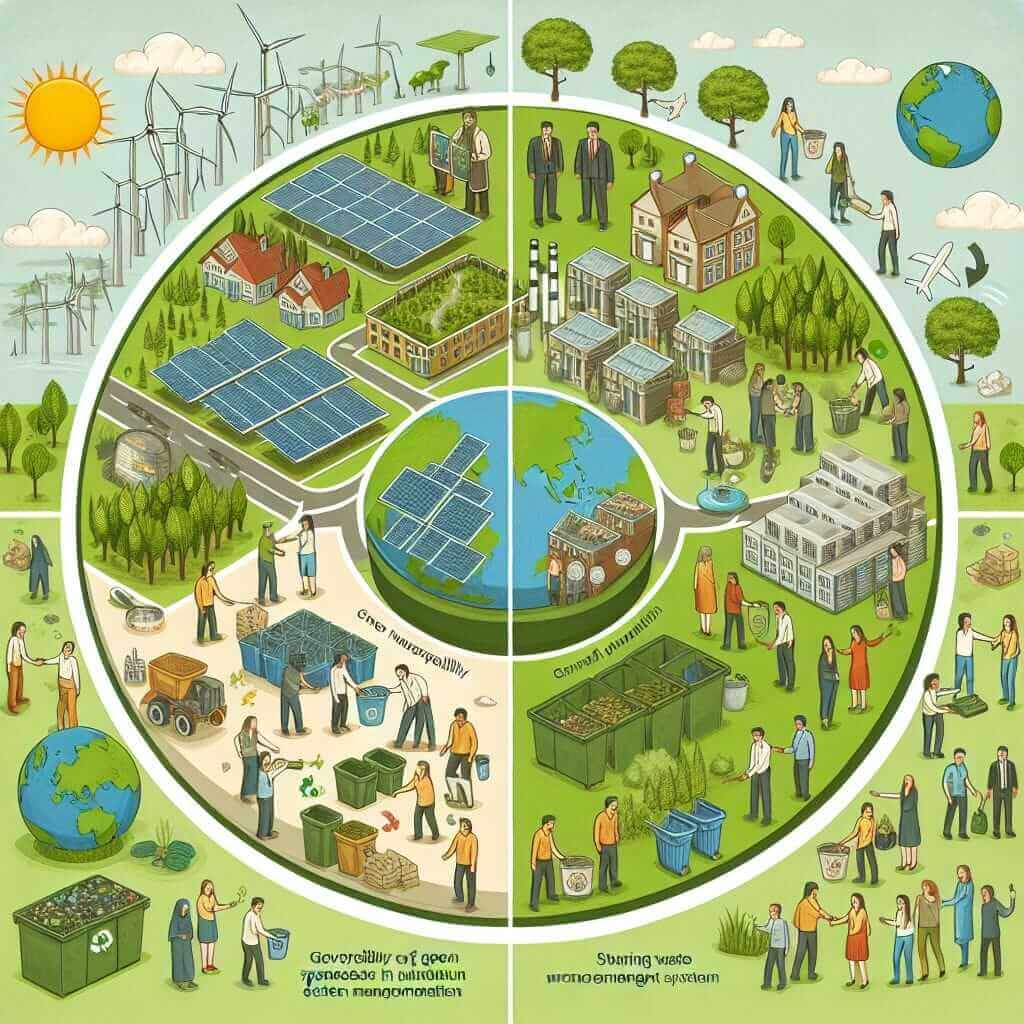The debate on whether the government or individuals should be more responsible for the environment is a pressing issue frequently appearing in past IELTS Writing Task 2 exams. With increasing frequency, this topic’s relevance is notable in contemporary discourse on sustainability and environmentalism. As observed through historical IELTS topics, candidates are often asked to balance governmental policies with individual actions in their essays. Here, we will select a representative question for detailed analysis and model essay creation, providing a comprehensive guide to approach this subject effectively.

Model Essay Task
Some people believe that environmental protection is the responsibility of the government, while others argue that individuals should be responsible for it. Discuss both views and give your own opinion.
Analyzing the Task
This task requires a discussion of both viewpoints: the role of the government and the individual’s responsibility in environmental protection. The candidate should present a balanced analysis and conclude with their opinion. Key phrases to address include “environmental protection,” “government responsibility,” and “individual responsibility.”
Model Essay Sample
Introduction
In recent years, the issue of who holds the primary responsibility for protecting the environment has ignited heated debates. While some argue that the government should be the primary custodian, others believe that individuals should take more accountability. I believe that a collaborative approach, where both entities assume significant roles, offers the most viable solution to environmental challenges.
Body Paragraph 1: Government Responsibility
Firstly, government intervention is crucial for comprehensive environmental protection due to its ability to implement large-scale policies and regulations. For instance, governments can enact laws that limit pollutant emissions from industries, promote the use of renewable energy, and enforce conservation measures. Additionally, governmental bodies can allocate resources for environmental education and awareness programs, thus fostering a more eco-conscious society. Without such institutional frameworks, individual efforts alone may prove insufficient.
Body Paragraph 2: Individual Responsibility
On the other hand, individual actions play an indispensable role in maintaining environmental sustainability. Everyday habits, such as recycling waste, using public transportation, and reducing energy consumption, collectively make a substantial difference. Moreover, when individuals become more environmentally conscious, they can influence businesses and governments to adopt greener practices by supporting eco-friendly products and policies. Hence, personal accountability is integral to the broader environmental movement.
Conclusion
In conclusion, while governments possess the regulatory power and resources to drive significant environmental changes, individual actions are equally vital in promoting sustainability at a grassroots level. Therefore, a dual approach where both government initiatives and individual actions converge is essential for effective environmental protection. Only through shared responsibility can we hope to secure a healthier planet for future generations.
(262 words)
Key Points When Writing About This Topic
Vocabulary and Grammar Notes:
- Use formal vocabulary such as “intervention,” “custodian,” “regulations,” “sustainability,” etc.
- Employ balanced conjunction phrases like “while…,” “on the other hand…,” “therefore…,” to juxtapose views.
- Ensure correct use of modals to discuss potential solutions and responsibilities, e.g., “can”, “should”, “must.”
Important Vocabulary to Remember:
- Custodian (noun) – /kʌˈstoʊdiən/: A person or organization responsible for protecting or caring for something.
- Intervention (noun) – /ˌɪntərˈvɛnʃən/: The action or process of intervening.
- Sustainability (noun) – /səˌsteɪnəˈbɪlɪti/: The ability to be maintained or continued in the long term.
- Grassroots (noun) – /ˈɡræsruts/: The most basic level of an activity or organization.
- Enact (verb) – /ɪˈnækt/: To make a bill or other proposal into law.
- Accountability (noun) – /əˌkaʊntəˈbɪlɪti/: The fact or condition of being accountable; responsibility.
- Conservation (noun) – /ˌkɒnsərˈveɪʃən/: The protection of natural resources.
- Pollutant (noun) – /pəˈlutənt/: A substance that causes pollution.
- Renewable (adjective) – /rɪˈnuəbəl/: Capable of being renewed; sustainable.
- Eco-conscious (adjective) – /ikoʊ-ˈkɒnʃəs/: Having an awareness or realization of the importance of the environment.
Conclusion
To master the IELTS Writing Task 2, focusing on topics such as the interaction between government and individual responsibilities for the environment is essential. Future topics might explore how different sectors contribute to environmental crises or debates on whether economic growth should prioritize over environmental concerns. By examining these anticipated questions and honing relevant vocabulary and structures, candidates can enhance their performance effectively.
For related essays, consider exploring The Importance of Community Support in Disaster Recovery and The Benefits of Healthy Eating Habits to broaden your understanding of ecological and communal responsibilities.